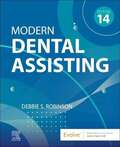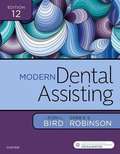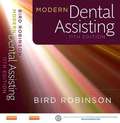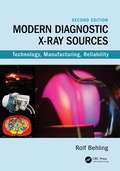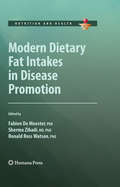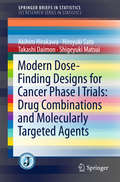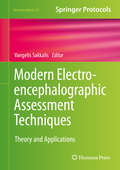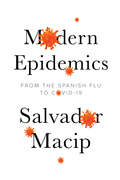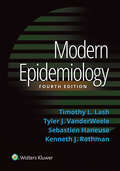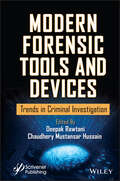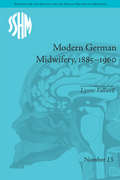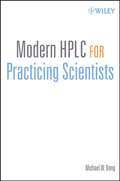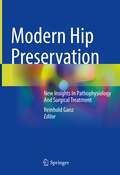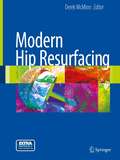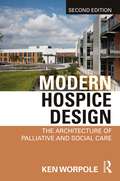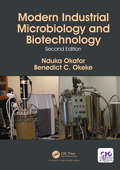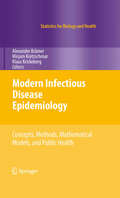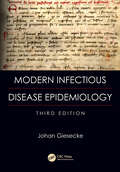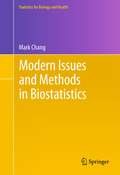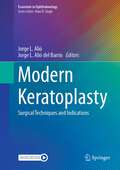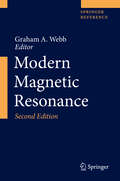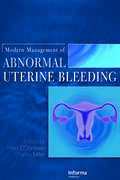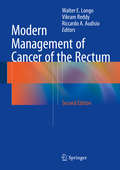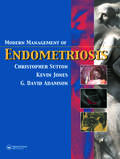- Table View
- List View
Modern Dental Assisting
by Debbie S. RobinsonEasily master all aspects of dental assisting with the most up-to-date and trusted text available. For more than 45 years, students and practitioners alike have relied on Modern Dental Assisting for its cutting-edge content, easy-to-grasp writing style, step-by-step procedures, and top-notch visuals. And the new 14th edition is no exception. With updated content ― including the latest technological advancements, clinical photographs, and coverage of cultural diversity and how it relates to patient care ― this new edition will guide you from your first day of class all the way to your first job in dental assisting.
Modern Dental Assisting
by Doni L. Bird; Debbie S. RobinsonThe 12th edition showcases a brand-new illustration program and content on technological advances, public health and access to care, tele dentistry, infection control guidelines, the Zika virus, Ebola, the oral-systemic health connection, and much more. <P><P>Written by trusted experts Doni Bird and Debbie Robinson, this is the all-in-one learning resource you need to stay ahead of the curve in the modern world of dental assisting.
Modern Dental Assisting (11th Edition)
by Debbie S. Robinson Doni L. BirdPrepare for a successful career as a dental assistant with Modern Dental Assisting, 11th Edition! Using an easy-to-understand approach, this book provides a complete foundation in the basic and advanced skills you must master to achieve clinical competence.
Modern Diagnostic X-Ray Sources: Technology, Manufacturing, Reliability
by Rolf BehlingNow fully updated, the second edition of Modern Diagnostic X-Ray Sources: Technology, Manufacturing, Reliability gives an up-to-date summary of X-ray source technology and design for applications in modern diagnostic medical imaging. It lays a sound groundwork for education and advanced training in the physics of X-ray production, X-ray interactions with matter, and imaging modalities and assesses their prospects. The book begins with a comprehensive and easy-to-read historical overview of X-ray tube and generator development, including key achievements leading up to the current technological and economic state of the field. The book covers the physics of X-ray generation, including the process of constructing X-ray source devices. The stand-alone chapters can be read in order or in selections. They take you inside diagnostic X-ray tubes, illustrating their design, functions, metrics for validation, and interfaces. The detailed descriptions enable objective comparison and benchmarking. This detailed presentation of X-ray tube creation and functions enables you to understand how to optimize tube efficiency, particularly with consideration for economics and environmental care. It also simplifies faultfinding. Along with covering the past and current state of the field, the book assesses the future regarding developing new X-ray sources that can enhance performance and yield greater benefits to the scientific community and to the public. After heading international R&D, marketing and advanced development for X-ray sources with Philips, and working in the X-ray industry for more than four decades, Rolf Behling retired in 2020 and is now the owner of the consulting firm XtraininX, Germany. He holds numerous patents and is continuously publishing, consulting and training.
Modern Dietary Fat Intakes in Disease Promotion
by Ronald Ross Watson Sherma Zibadi Fabien De MeesterThe industrial and agricultural revolutions have dramatically changed our lifestyles including where we get foods and what we eat. Modern diets have moved away from a close association with historically beneficial foods and diets towards foods and diets with increased fats and contaminants and with much lower intakes of fruits and vegetables. Modern Dietary Fat Intakes in Disease Promotion focuses on the scientific evidence that define such risks in modern diets with the consequences of increased illness, cancer and disease. There is also an emphasis on methods to reverse negative components of modern diets for health improvement. The volume is divided into six sections. The first section focuses on the behavioral aspects of eating and is followed by sections on fats, obesity and cardiovascular disease and fats and cholesterol. The fourth section contains novel chapters on the potential for contaminants in fats and oils to increase risk of illnesses. The fifth section examines fat induced disease and ill-health. The sixth section looks at dietary and pharmaceutical approaches to modify fat-induced disease and ill-health. Each section contains chapters that address treatment options as well as prevention strategies. Modern Dietary Fat Intakes in Disease Promotion provides practical, data-driven resources based upon the totality of the evidence to help the reader understand both the basics as well as treatments and preventive strategies that are involved in balancing the fats in one's diet as well as within one's body.
Modern Dose-Finding Designs for Cancer Phase I Trials: Drug Combinations and Molecularly Targeted Agents
by Shigeyuki Matsui Akihiro Hirakawa Hiroyuki Sato Takashi DaimonThis book deals with advanced methods for complex phase I and phase I/II dose-finding clinical trials with multiple drugs and outcomes in oncology. It provides not only methodological aspects of the dose-finding methods, but also software implementations and practical considerations in applying these complex methods to real cancer clinical trials. Thus, the book aims to furnish researchers in biostatistics and statistical science with a good summary of recent developments of complex dose-finding methods as well as providing practitioners in biostatistics and clinical investigators with advanced materials for designing, conducting, monitoring, and analyzing complex dose-finding trials. The topics in the book are mainly related to cancer clinical trials, but many of those topics are potentially applicable or can be extended to trials for other diseases. The focus is mainly on model-based dose-finding methods for two kinds of phase I trials. One is clinical trials with combinations of two agents. Development of dose-finding methods for two-agent combination trials requires reasonable models that can adequately capture joint toxicity probabilities for two agents, taking into consideration possible interactions of the two agents on toxicity probability such as synergistic or antagonistic effects. Another is clinical trials for evaluating both efficacy and toxicity outcomes in single- and two-agent combination trials. These methods are often applied to the phase I trials including molecularly targeted agents (MTAs) because the toxicity and efficacy for a MTA does not monotonically increase with dose, but the efficacy often increases initially with the dose and then plateaus. Successful software implementations for several dose-finding methods are introduced in the book, and their operating characteristics in practice are discussed. Recent applications of the above-mentioned adaptive dose-finding methods in drug developments are also provided.
Modern Electroencephalographic Assessment Techniques
by Vangelis SakkalisModern Electroencephalographic Assessment Techniques: Theory and Applications presents numerous signal processing and connectivity analysis methodologies addressing a wide variety of clinical applications including epilepsy, schizophrenia, Alzheimer's disease and even alcoholism. Among the different topics addressed, the neurophysiological basis of cognitive processes is also investigated. The goal is to provide a comprehensive overview of the most modern and widely established approaches mainly applied in, but not limited to, decomposing high resolution multichannel Electroencephalography (EEG) and Magnetoencephalography (MEG) signals into functional interconnected brain regions. Synergistic approaches linking both EEG/ MEG and functional Magnetic Resonance Imaging (fMRI) techniques are also discussed. In line with the popular Neuromethods series, chapters present the theoretical basis of each method along with prosperous application domains, in the form of a balanced mixture of theoretical tutorials, comprehensive reviews and original research. Emphasis is given to the underlying assumptions, to technical matters that greatly affect the outcome of each proposed method, to the ambitions and to the domain of application of each method. Furthermore, links to graph theory and visualization of connectivity motifs is also addressed in an attempt to better describe the functional characteristics of brain networks. Authoritative and practical, Modern Electroencephalographic Assessment Techniques: Theory and Applications touches upon both the biomedical and computational aspects of this exciting and rapidly evolving field and will allow for a more in-depth, vital understanding of the brain's complex underlying mechanisms.
Modern Epidemics: From the Spanish Flu to COVID-19
by Salvador MacipCOVID-19 has made us all aware of the fact that we live in a world full of invisible enemies. Normally, we don’t even realize they’re there, but from time to time one of these microscopic creatures becomes powerful enough to turn everything upside down. What are these invisible enemies, and how can we prepare ourselves for the pandemics of the future? A specialist in the cellular biology of diseases, Salvador Macip explains, in a language everyone can understand, what it means to share the planet with millions of microbes – some wonderful allies, others terrible foes. He provides a concise account of epidemics that changed history, and focuses on the great modern plagues that are still causing millions of deaths every year, from influenza, TB and malaria to COVID-19. Macip also examines the methods we have used – from vaccines to improved sanitation and social distancing – to try to control these invisible enemies. This authoritative overview of modern epidemics and the pathogens that cause them will be essential reading for anyone who wants to understand our world today, a world in which some of the greatest threats to the human species come from the invisible microbes with which we share this planet.
Modern Epidemiology
by Timothy L. Lash Tyler J. VanderWeele Sebastien Haneause Kenneth RothmanNow in a fully revised Fourth Edition, Modern Epidemiology remains the gold standard text in this complex and evolving field. This edition continues to provide comprehensive coverage of the principles and methods for the design, analysis, and interpretation of epidemiologic research. Featuring a new format allowing space for margin notes, this edition • Reflects both the conceptual development of this evolving science and the increasing role that epidemiology plays in improving public health and medicine. • Features new coverage of methods such as agent-based modeling, quasi-experimental designs, mediation analysis, and causal modeling. • Updates coverage of methods such as concepts of interaction, bias analysis, and time-varying designs and analysis. • Continues to cover the full breadth of epidemiologic methods and concepts, including epidemiologic measures of occurrence and effect, study designs, validity, precision, statistical interference, field methods, surveillance, ecologic designs, and use of secondary data sources. • Includes data analysis topics such as Bayesian analysis, probabilistic bias analysis, time-to-event analysis, and an extensive overview of modern regression methods including logistic and survival regression, splines, longitudinal and cluster-correlated/hierarchical data analysis, propensity scores and other scoring methods, and marginal structural models. • Summarizes the history, specialized aspects, and future directions of topical areas, including among others social epidemiology, infectious disease epidemiology, genetic and molecular epidemiology, psychiatric epidemiology, injury and violence epidemiology, and pharmacoepidemiology.
Modern Forensic Tools and Devices: Trends in Criminal Investigation
by Chaudhery Mustansar Hussain Deepak RawtaniMODERN FORENSIC TOOLS AND DEVICES The book offers a comprehensive overview of the latest technologies and techniques used in forensic investigations and highlights the potential impact of these advancements on the field. Technology has played a pivotal role in advancing forensic science over the years, particularly in modern-day criminal investigations. In recent years, significant advancements in forensic tools and devices have enabled investigators to gather and analyze evidence more efficiently than ever. Modern Forensic Tools and Devices: Trends in Criminal Investigation is a comprehensive guide to the latest technologies and techniques used in forensic science. This book covers a wide range of topics, from computer forensics and personal digital assistants to emerging analytical techniques for forensic samples. A section of the book provides detailed explanations of each technology and its applications in forensic investigations, along with case studies and real-life examples to illustrate their effectiveness. One critical aspect of this book is its focus on emerging trends in forensic science. The book covers new technologies such as cloud and social media forensics, vehicle forensics, facial recognition and reconstruction, automated fingerprint identification systems, and sensor-based devices for trace evidence, to name a few. Its thoroughly detailed chapters expound upon spectroscopic analytical techniques in forensic science, DNA sequencing, rapid DNA tests, bio-mimetic devices for evidence detection, forensic photography, scanners, microscopes, and recent advancements in forensic tools. The book also provides insights into forensic sampling and sample preparation techniques, which are crucial for ensuring the reliability of forensic evidence. Furthermore, the book explains the importance of proper sampling and the role it plays in the accuracy of forensic analysis. Audience The book is an essential resource for forensic scientists, law enforcement officials, and anyone interested in the advancements in forensic science such as engineers, materials scientists, and device makers.
Modern German Midwifery, 1885–1960 (Studies for the Society for the Social History of Medicine #13)
by Lynne FallwellBetween the late 18th and the early 20th century, the industrialized world experienced a transition in birth practices. While in many countries this led to a separation of midwifery from modern medicine, in Germany new standards of health care were embraced. Fallwell’s study explores this transition and sets it in its wider historical context.
Modern HPLC for Practicing Scientists
by Michael W. DongHigh-Performance Liquid Chromatography (HPLC) is the most widely used analytical technique for organic compounds and biomolecules. This book is both concise in its treatment of HPLC and broad in its scope, providing the essence of HPLC fundamentals, applications, and developments, as well as providing a modern operating guide for the practicing scientist. The book includes a comprehensive overview of the principles and practices of HPLC in diverse industries; describes basic fundamentals and terminologies for the novice; and introduces more advanced concepts, best practices, and modern trends for the more experienced practitioner. While systematic and broad in scope, the book has a definite focus on reversed-phase HPLC with an emphasis on pharmaceutical applications.
Modern Hip Preservation: New Insights In Pathophysiology And Surgical Treatment
by Reinhold GanzThis book comprehensively discusses both the history and the current concepts of modern hip preservation surgery. Offering an overview of the game-changing studies on the hip and pelvis vascular anatomy it thoroughly describes the evolution of a new and comprehensive pathophysiology of the hip joint degeneration. Moreover, in the first part, particular emphasis is devoted to the history and current knowledge of femoroacetabular impingement and hip dysplasia.The second part examines the main surgical procedures that have evolved and matured since the 1980s, culminating in a new class of open surgical approaches, such as hip surgical dislocation, periacetabular osteotomies, proximal femoral osteotomies and corrections, and widening the door for hip-arthroscopy. Based on over 40 years of practical and pioneering experience by the editor and 15 years of collaboration with the GICCA Study Group, this book offers a valuable resource to residents, researchers and practicing orthopedic surgeon wishing to gain insights into hip preservation surgery.
Modern Hip Resurfacing
by Derek J. McminnHip replacement surgery is a radical and traumatic procedure that has enormous disadvantages to the patient in terms of postoperative mobility and morbidity. Hip resurfacing is a more conservative approach resulting in less of the patient's hip and femur being lost, which has great advantages to a younger patient group. The author of Hip Resurfacing is the world's leading authority on this surgery, making this the definitive resource in hip resurfacing
Modern Hospice Design: The Architecture of Palliative and Social Care
by Ken WorpoleThe new edition of this acclaimed book comprehensively updates its timely advocacy of the need for good quality palliative care, today more necessary than ever. Rooted in the social history of the care of the elderly and terminally ill, Modern Hospice Design: The Architecture of Palliative and Social Care takes cognisance of the new conditions of social care in the 21st century, principally in the UK, Europe and North America. It does so with regard to the development of new building types, but also in response to new philosophies of palliative care and the status of the elderly and the dying. Benefitting from a clearer methodological approach and conceptual framework, the expanded book allows a broad section of readers to navigate the text more easily. At its core is a public discussion of a philosophy of design for providing care for the elderly and the vulnerable, taking the importance of architectural aesthetics, the use of quality materials, the porousness of design to the wider world, and the integration of indoor and outdoor spaces as part of the overall care environment. In doing so it advocates care settings that, in the words of Maggie Jencks whose life and ideas inspired the Maggie’s Centres, ‘rise to the occasion’. Including new chapters and new in-depth case studies, complete will full colour illustrations, this book is for architects and interior designers and their students, healthcare professionals, social care providers, estate and facility managers, hospital administrators and Healthcare Trust Boards.
Modern Immunohistochemistry
by Peiguo Chu Lawrence WeissDiagnostic pathology is an inherently flawed science due to the many possible interpretations of various tissues. However, the application of immunohistochemical stains as a diagnostic tool has been widely used since the 1990s as an extremely effective ancillary technique that removes much subjectivity from the practice. In fact, immunohistochemistry has supplanted simple morphologic evaluation as the definitive diagnostic method for a wide array of tumor types. This book offers a new and modern atlas-based resource for this science. Every anatomic region is covered in detail, and major diseases contain side-by-side examples of other ancillary staining techniques for comparison. The text is geared toward both the resident and practitioner of anatomic pathology and is supplemented with histograms, algorithms, and guides to the application and interpretation of uncommon antigens and immunostains. Not only is the book illustrated with more than 600 high-quality photomicrographs, but a companion CD-ROM of all images in downloadable format is included.
Modern Industrial Microbiology and Biotechnology
by Nduka Okafor Benedict C. OkekeThe field of industrial microbiology involves a thorough knowledge of the microbial physiology behind the processes in the large-scale, profit-oriented production of microbe-related goods which are the subject of the field. In recent times a paradigm shift has occurred, and a molecular understanding of the various processes by which plants, animals and microorganisms are manipulated is now central to industrial microbiology. Thus the various applications of industrial microbiology are covered broadly, with emphasis on the physiological and genomic principles behind these applications. Relevance of the new elements such as bioinformatics, genomics, proteomics, site-directed mutation and metabolic engineering, which have necessitated the paradigm shift in industrial microbiology are discussed.
Modern Infectious Disease Epidemiology
by Mirjam Kretzschmar Alexander Krämer Klaus KrickebergHardly a day goes by without news headlines concerning infectious disease threats. Currently the spectre of a pandemic of influenza A|H1N1 is raising its head, and heated debates are taking place about the pro's and con's of vaccinating young girls against human papilloma virus. For an evidence-based and responsible communication of infectious disease topics to avoid misunderstandings and overreaction of the public, we need solid scientific knowledge and an understanding of all aspects of infectious diseases and their control. The aim of our book is to present the reader with the general picture and the main ideas of the subject. The book introduces the reader to methodological aspects of epidemiology that are specific for infectious diseases and provides insight into the epidemiology of some classes of infectious diseases characterized by their main modes of transmission. This choice of topics bridges the gap between scientific research on the clinical, biological, mathematical, social and economic aspects of infectious diseases and their applications in public health. The book will help the reader to understand the impact of infectious diseases on modern society and the instruments that policy makers have at their disposal to deal with these challenges. It is written for students of the health sciences, both of curative medicine and public health, and for experts that are active in these and related domains, and it may be of interest for the educated layman since the technical level is kept relatively low.
Modern Infectious Disease Epidemiology
by Johan GieseckeHighly practical yet authoritative, the new edition of Modern Infectious Disease Epidemiology has been thoroughly updated and revised in line with changing health concerns. This successful book continues to outline the tools available to the infectious disease student or clinician seeking a thorough background in the epidemiology of infectious and communicable diseases. Building on many case studies and practical scenarios included, the book then uses the tools learnt to illustrate the fundamental concepts of the study of infectious diseases, such as infection spread, surveillance and control, infectivity, incubation periods, seroepidemiology, and immunity in populations. New edition of this popular book, completely revised and updated Retains the clarity and down-to-earth approach praised in previous editions Successfully combines epidemiological theory with the principles of infectious disease treatment and control A highly experienced author brings a personal and unique approach to this important subject All students of epidemiology, infectious disease medicine and microbiology will find this text invaluable, ensuring its continued popularity.
Modern Issues and Methods in Biostatistics
by Mark ChangClassic biostatistics, a branch of statistical science, has as its main focus the applications of statistics in public health, the life sciences, and the pharmaceutical industry. Modern biostatistics, beyond just a simple application of statistics, is a confluence of statistics and knowledge of multiple intertwined fields. The application demands, the advancements in computer technology, and the rapid growth of life science data (e.g., genomics data) have promoted the formation of modern biostatistics. There are at least three characteristics of modern biostatistics: (1) in-depth engagement in the application fields that require penetration of knowledge across several fields, (2) high-level complexity of data because they are longitudinal, incomplete, or latent because they are heterogeneous due to a mixture of data or experiment types, because of high-dimensionality, which may make meaningful reduction impossible, or because of extremely small or large size; and (3) dynamics, the speed of development in methodology and analyses, has to match the fast growth of data with a constantly changing face. This book is written for researchers, biostatisticians/statisticians, and scientists who are interested in quantitative analyses. The goal is to introduce modern methods in biostatistics and help researchers and students quickly grasp key concepts and methods. Many methods can solve the same problem and many problems can be solved by the same method, which becomes apparent when those topics are discussed in this single volume.
Modern Keratoplasty: Surgical Techniques and Indications (Essentials in Ophthalmology)
by Jorge L. Alió Jorge L. Alió del BarrioKeratoplasty techniques have evolved in the last 15 years into a variety of forms, which have diversified the previous monographic presence of the penetrating keratoplasty technique. The development of anterior lamellar graft (DALK), and posterior lamellar graft (DSAEK), makes an important change in the approach to lamellar surgery. Later on, the appearance of DMEK and superficial lamellar keratectomy broadened the spectrum. Today, intralamellar surgery has evolved with a number of techniques that involve stromal enhancement with biologically active or acellular corneal laminas from donors, customized lenticles from SMILE surgeries or customized by corneal topography, and more recently, corneal regeneration of the stroma by advanced techniques using mesenchymal stem cells.This book offers a comprehensive overview of modern keratoplasty techniques, the technology, surgical skills, and outcomes. It highlights the practical uses of keratoplasty for all cornea surgeons and anterior segment surgeons. The book is divided into sections, each covering a specific type of keratoplasty, including chapters on innovations within each surgery type. The goal of this book is to unify all recent knowledge about the different keratoplasty techniques and outcomes, creating a one-stop resource for ophthalmaolgy surgeons.Modern Keratoplasty is a must-have resource for corneal specialists and surgeons, anterior segment surgeons, refractive surgeons, cataract surgeons, residents, fellows, and corneal researchers.
Modern Magnetic Resonance: Part 1: Applications In Chemistry, Biological And Marine Sciences, Part 2: Applications In Medical And Pharmaceutical Sciences, Part 3: Applications In Materials Science And Food Science
by Graham A. WebbA comprehensive collection of the applications of Nuclear Magnetic Resonance (NMR), Magnetic Resonance Imaging (MRI) and Electron-Spin Resonance (ESR). Covers the wide ranging disciplines in which these techniques are used:* Chemistry;* Biological Sciences;* Pharmaceutical Sciences;* Medical uses;* Marine Science;* Materials Science;* Food Science. Illustrates many techniques through the applications described, e.g.:* High resolution solid and liquid state NMR;* Low resolution NMR, especially important in food science;* Solution State NMR, especially important in pharmaceutical sciences;* Magnetic Resonance Imaging, especially important for medical uses;* Electron Spin Resonance, especially important for spin-labelling in food, marine and medical studies.
Modern Management of Abnormal Uterine Bleeding
by Peter Joseph O’Donovan Charles E MillerModern Management of Abnormal Uterine Bleeding focuses on helping gynecologists refine their operative techniques and consider new approaches to the diagnosis, and treatment, of this highly challenging condition by investigating: current scientific and clinical trails &nb
Modern Management of Cancer of the Rectum
by Riccardo A. Audisio Walter E. Longo Vikram ReddyModern Management of Cancer of the Rectum is intended to provide a comprehensive overview of all aspects of rectal neoplasms. It addresses epidemiology, biology, screening and chemoprevention, the role of imaging in diagnosis, staging and prognosis, radiation therapy, medical and surgical treatment, as well as new modalities of therapy, including laparoscopy, and transanal endoscopic surgery. A greater understanding of prognostic factors, patterns of spread and natural history has occurred during the past decade; together with new diagnostic modalities this has led to significant changes in the management of patients with rectal cancer. This book will be invaluable for all those who treat rectal cancer.
Modern Management of Endometriosis
by Kevin Jones G. David Adamson Professor Christopher SuttonEndometriosis - a condition in which the lining of the uterus grows in other abdominal locations - is one of the most common causes of severe period pain, pelvic pain, and abnormal bleeding in women. Untreated, it may result in long-term complications such as pelvic adhesions, ovarian cysts and infertility. At times, bowel, bladder, and ureters may
